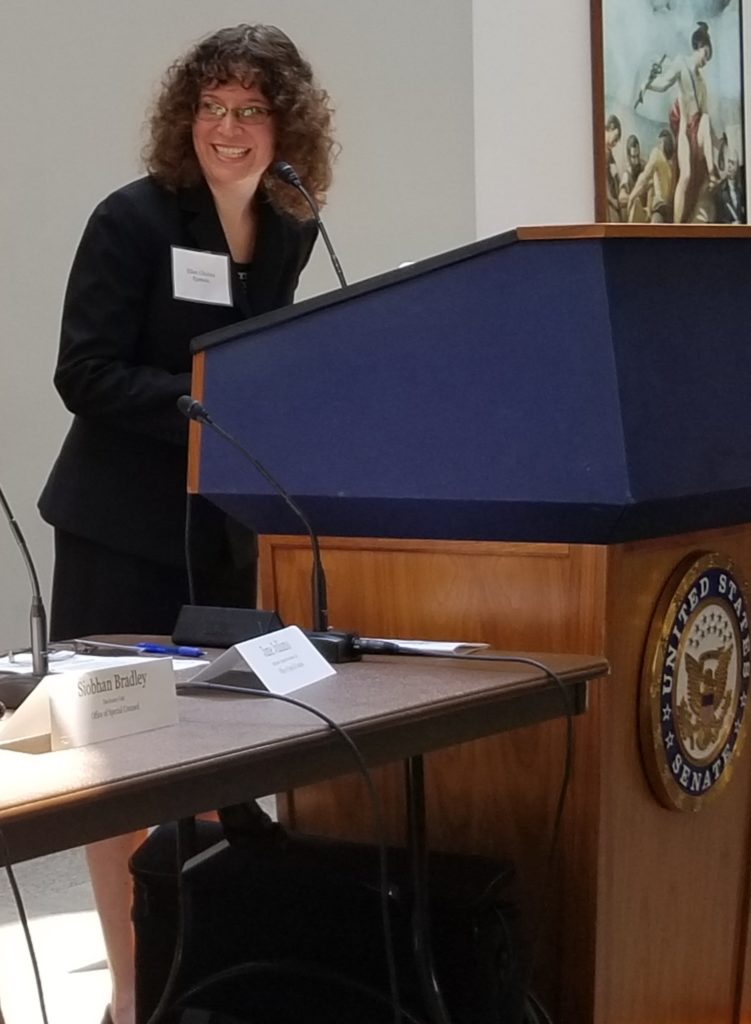2019 Whistleblower Summit: Survival Tips and Lessons Learned
By Shanna Devine
This is the final in a three-part blog series.
The Summit was filled with practical advice and painful lessons-learned from whistleblowers, their advocates, congressional partners, and the agencies that enforce their rights.
Working with the Office of Special Counsel
During the panel, “Working with the Office of Special Counsel” (OSC) – the independent federal agency that oversees the Whistleblower Protection Act – its staff stressed that the Special Counsel aims to provide “old-style customer service” by being accurate, timely and friendly. As a small and underfunded agency, they face a large backlog, but they understand that responsiveness can build confidence. Therefore, within 48 hours of an employee filing a complaint, the OSC aims to both confirm receipt and provide contact information for the attorney assigned to the complaint. The panel detailed the differences between filing a disclosure Unit (to report wrongdoing) and filing a complaint (to report retaliation). For instance, while OSC has the authority to investigate alleged retaliation, it can only refer the alleged misconduct to the agency head for investigation.

When responding to an introductory email from the OSC attorney, Principal Deputy Special Counsel Ellen Epstein encouraged truth-tellers to 1) provide a timeline of key events, and 2) identify key documents that lay out the case, and limit the number of extraneous documents. Jane Juliano discussed OSC’s Alternative Disputes Resolution unit, which primarily consists of meditation and “often yields resolutions that are more creative and tailored to the needs of the parties as well as far less costly in time and money than traditional legal routes”, according to OSC.
Working with Congress
On day two of the Summit, Public Citizen held a panel on “Working More Effectively with Congress”. Analogous to the OSC panel, it was grounded in realistic expectations, tactics for best obtaining support, and success stories that illustrate the potential of congressional partnerships. Speaking from personal experience, Summit co-organizer Michael McCray explained, “your ability to survive your whistleblowing experience is built on your ability to maintain and build relationships.” In Congress, those relationships are built with the staff on the committee of jurisdiction or within your Representative’s office, for instance. Those front-lines staff imparted their advice based on decades of working with whistleblowers.
Krista Boyd, General Counsel for the House Oversight and Reform Committee (majority), described that whistleblowers are a critical part of their ability to conduct oversight, as it has become more difficult to obtain documents directly from agencies under the current administration. Boyd explained that at times the Committee can help with individual cases, and it will protect their sources’ identifies. Dave Berick, Chief Investigator for the Senate Finance Committee (minority), and Elizabeth Hempowicz, Policy Director for the Project On Government Oversight, also provided nuts and bolts advice for blowing the whistle to Congress. In summary –
- First identify the best congressional committee or office to communicate your disclosure, based on jurisdiction, a Member of Congress’ history or interest, and even consider your District Office
- Develop ground rules for your working relationship, including confidentiality requests and any limitations around the use of evidence
- Gather as much evidence as you legally and responsibly can, and make a list of the documents that Congress can request
- Limit your first meeting to a succinct summary, and focus on the public consequences of your disclosures
- Be clear in your congressional “ask(s)”, whether it is investigating the underlying misconduct and/or helping to shield you from retaliation
- Keep expectations low, as congressional staff have limited time and bandwidth and may not be able to respond quickly or to follow through on all of the issues raised
Protecting Yourself While Protecting the Public
Practical lessons-learned continued throughout the Summit. One discussion, moderated by NPR political reporter Tim Mak, covered the new whistleblower survival guide Caught between Conscience and Career: Expose Abuse Without Exposing Your Identity. Developed by our partners at the Government Accountability Project, Project On Government Oversight and Public Employees for Environmental Responsibility, it explores the risks of speaking truth to power and how to protect oneself in the process.
Given the public’s short attention span and the quick pace of the news media, Mak suggested that whistleblowers distill their story into “the simplest version of what you are trying to say” and summarize it to the length of a postcard. Nick Schwellenbach, Project On Government Oversight’s director of investigations, cautioned that whistleblowing “can lead to a legal battle that sometimes stretches beyond a decade,” and therefore anyone considering blowing the whistle should first talk to their loved ones about the possible impacts of that life-changing decision.
In that vein, the whistleblower survival guide discusses practical ways to remain anonymous while exposing misconduct, including how best to protect your identity in the digital age and working with the press. It also warns of the limitations of even strong legal rights. Tom Devine of the Government Accountability Project cautioned, “You can’t just rely on the legal system, you must rely on the power of the truth.” He described how whistleblowers can conduct “legal campaigns” to make sure everyone who should be benefiting from the secret abuse of power knows what is going on – by partnering with advocacy organizations, Congress, and the media.
This year’s Summit provided a rich training ground for developing those legal campaigns, so that whistleblowers can protect themselves while protecting the public interest.